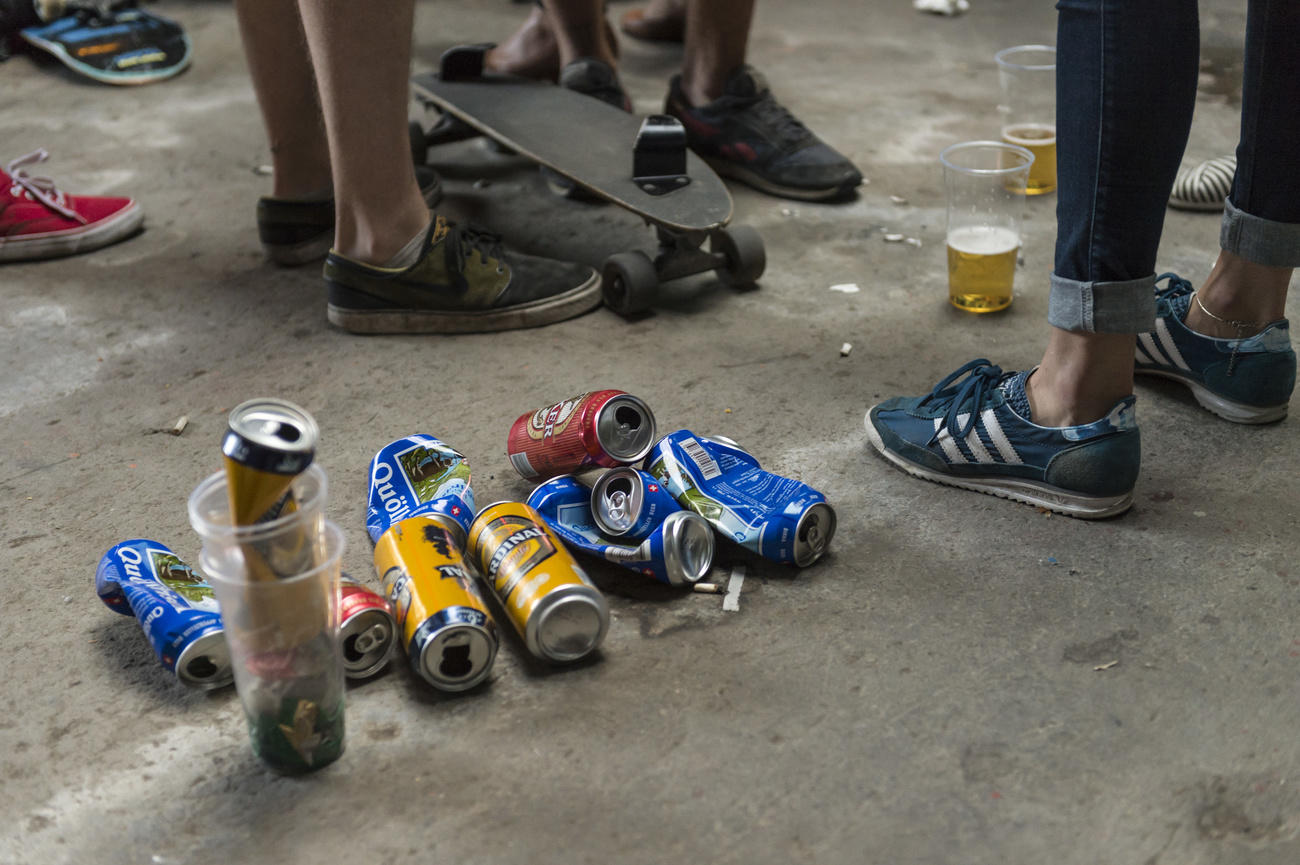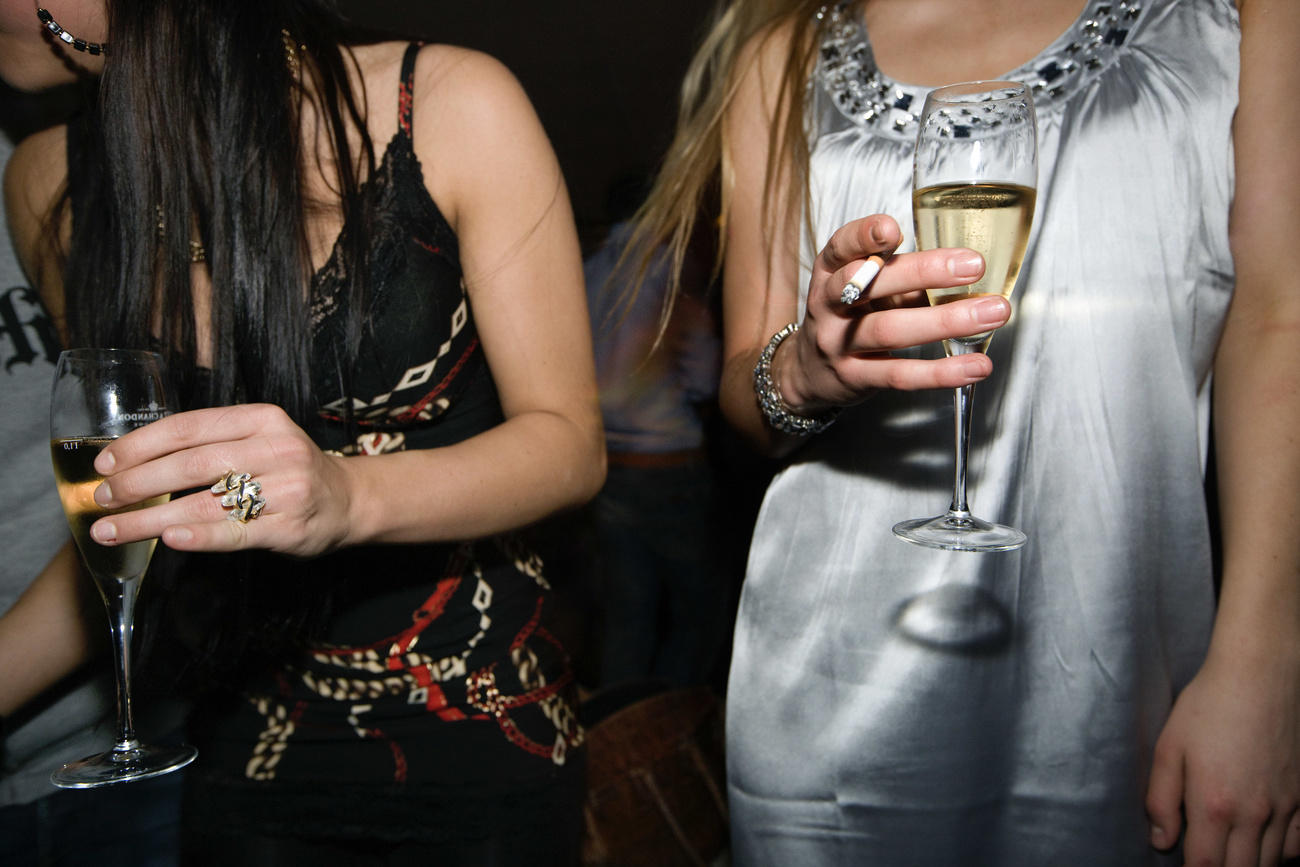
Swiss above OECD average for alcohol intake

An international study puts Switzerland above the average when it comes to alcohol intake, although during the pandemic, drinkers seem to have slowed down.
The report published on Wednesday by the Organisation for Economic Cooperation and Development (OECD) puts the average Swiss intake at 11.5 litres of pure alcohol per resident per year.
This amount, just above the OECD average, corresponds to 2.5 bottles of wine or 4.4 litres of beer weekly for those aged 15 or above.
Some 4.3% of Swiss adults are “dependent” on alcohol, the report writes. The country also has one of the lowest percentages of “abstainers”, at around 20%.
Harmful measures
According to the OECD, across all the (mainly developed and European) countries involved, one in three adults has engaged in binge drinking at least once in the previous month, while one in five youths have been drunk by the age of 15.
The Czech Republic drinks the most of all countries surveyed, followed by Lithuania, Luxembourg, Germany, and Ireland. Across the board, men drank more than women – usually around double.

More
Binge drinking increases among Swiss youngsters
The report says that alcohol consumed to a dangerous degree can reduce life expectancy, increase healthcare costs, decrease productivity, and ultimately lower a country’s GDP.
It defines “harmful” consumption as more than one glass of alcohol daily for women, and more than 1.5 glasses (just under a pint of lower-strength beer, for example) for men.
Pandemic party
While the long-term effect of the pandemic on alcohol consumption is still difficult to gauge, the short-term effects varied widely from country to country, the OECD writes, with some upping their intake and some lowering it.
They mark out Switzerland as one example where, in the first wave at least, a marked decrease in alcohol consumption was observed, although they didn’t go further in explaining exactly why this was the case.
Switzerland was also singled out as the country with the lowest rate of VAT imposed on alcohol, at 7.7%.
The report is available on the OECD’s websiteExternal link.

More
What people in Switzerland are addicted to

In compliance with the JTI standards
More: SWI swissinfo.ch certified by the Journalism Trust Initiative






























You can find an overview of ongoing debates with our journalists here . Please join us!
If you want to start a conversation about a topic raised in this article or want to report factual errors, email us at english@swissinfo.ch.